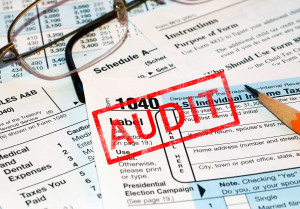Among all the things that wind up on a small business startup to-do list, there is the necessary task of accounting that hides in plain sight! As complicated or tedious as accounting may seem, it is vital to the growing success of virtually any business and they must be handled efficiently and appropriately. With that said, professional accountant Randall Dang has six essential tips to help your startup get off on the right foot!
1. Know The Laws Of The Land
Time to break out your notebooks and pencils because you have some homework to do! Whether you are planning the launch of your startup or you’ve already got it up and running, it’s really important to do your research on things like understanding tax forms, write-offs, tax deductions, laws and licensing requirements, and other policies pertaining to your business. Awareness of such information can help you down the road by protecting your business – hindsight is always 20/20.
2. Business Account
Head to a bank of your choice and open up a separate business account to make it easier to track and record all of your business’s income and expenses. This will make things easier during tax time and a simple checking and savings account can suffice. Additionally, research some of the benefits of a business credit card because even businesses can have credit scores.
3. Track & Keep Everything
Randall Dang says that it is critical to the success of your business to track every business expense with receipts to verify them. This also includes any payments you have made on bills and even infrequent travel costs need to be documented. If you don’t track your expenses, you will have a hard time creating reliable financial statements and it can jeopardize accurate reports on your tax returns.
4. Bookkeeping
Bookkeeping is necessary in order to create clear and accurate reports. Many small business owners will first start the bookkeeping process with computer programs that inputs the data in spreadsheets but once the business begins to grow larger, they may pass off the duties to an accountant.
5. Jumping On Payroll
While writing out a check to an employee seems pretty easy to pay them for their work, it’s a little more complex than that. You’ll need to establish a credible payroll system that has a schedule and can withhold the appropriate amount of taxes, exemptions, etc.
6. Pay Taxes
If you don’t want the government to come knocking at the door of your business, you better pay your taxes! That means you need to understand what taxes your business owes and also must be aware of tax breaks that can benefit your business. Failure to pay taxes can lead to hefty financial ramifications and it’s wise to hire an experienced accountant to manage them for you.
While these six tips are the barebones minimum, you still have quite a bit of homework to do to ensure your business is on the path to success. Just keep these items in mind as you navigate the waters of business ownership!

